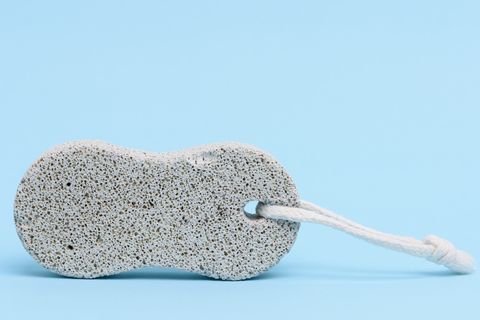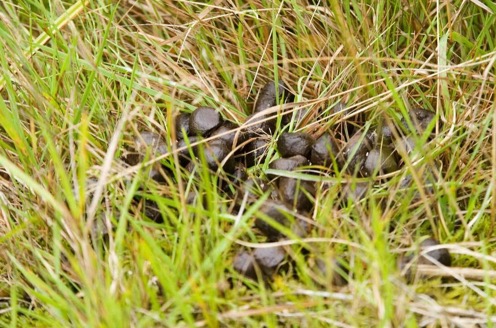
Connect with a verified veterinarian in minutes. Licensed vets are available 24/7 to answer your questions. No need to worry about your furry family member.
Do you keep a pumice stone in the bathroom? If so, you’re not alone. Many of us keep a pumice stone to keep our skin nice and smooth. But what happens if your dog eats a pumice stone? Can a pumice stone make your dog sick?
In this article, we’ll take a look at what a pumice stone is and whether or not it can make your canine companion sick. Let’s get started!
What is a Pumice Stone?
Pumice stones are very abrasive, which makes them wonderful for many uses. They’re often used by humans as a personal care product, which works to remove dead skin, calluses, and skin. They’re also used in beauty shops for pedicures, and pumice is sometimes used in hand cleaners. There are many other uses, too!
While pumice stones can be great for humans to remove dead skin and more, what happens if your dog eats a pumice stone?
Pumice Stone & Dogs
Needless to say, pumice stone is not good for dogs. When dogs chew on pumice stones, they may accidentally damage their teeth and the tissues in their mouths. The mouth sores can become infected, too.
Another problem is if the dog swallows a pumice stone. Depending on your pet’s size, eating a very small piece of pumice stone may not cause them problems. However, it is always recommended to contact your veterinarian to discuss your pet’s individual case so they can give you personalized advice.
Pumice stones can get lodged in your pet’s digestive system (stomach and intestines) and can cause a blockage which can make your pet very sick.

Review symptoms, medications & behavior to keep your pets healthy with a Vet Online in just minutes.
Ask a Vet Live NowWhat Are the Symptoms of Intestinal Blockage in Dogs?
You may notice these symptoms if your dog has eaten pumice stone and developed an intestinal blockage:
- Vomiting
- Diarrhea
- Constipation
- Abdominal pain & swelling
- Dehydration
- Lack of appetite
- Lethargy
If you notice any of these symptoms in your dog, then call the vet immediately. This could be a life-threatening medical emergency.
It is important to keep in mind that these symptoms may not always occur immediately.
Therefore, it is strongly recommended to contact your vet if you suspect your pet has eaten some pumice stone (even if he has none of these symptoms). Your vet will be able to give you advice on the next best step for your pet. In general, the sooner your pet gets individual medical advice the better chance they have of making a good recovery.
Treatment of an Intestinal Blockage in Dogs
At the vet’s, they will perform a complete physical exam of your dog. The vet may also order lab work (blood tests) and x-rays. The x-rays are to help show where the pumice stone is located and if it’s created a blockage or not.
If there’s a blockage, your fur baby may require emergency surgery. Getting prompt medical advice from your veterinarian will help your pet to have the best chance of recovering from this condition.
Connect with a verified veterinarian in minutes. Licensed vets are available 24/7 to answer your questions. No need to worry about your furry family member.

Evie Moloney, RCVS
This article has been reviewed and approved by an independent Veterinarian: Evie is a vet surgeon who graduated from the University College Dublin, which is the only university offering the veterinary medicine degree in Ireland. She really enjoys surgery and has also worked as an emergency and critical care vet. She is passionate about sharing education about preventative health care for pets, especially the importance of regular dog and cat teeth brushing at home. She also enjoys helping owners find practical solutions for keeping pets as comfortable as possible while living with conditions such as arthritis. When not working, she enjoys hiking and swimming.
Review symptoms, medications & behavior to keep your pets healthy with a Vet Online in just minutes.
Ask a Vet Live Now





